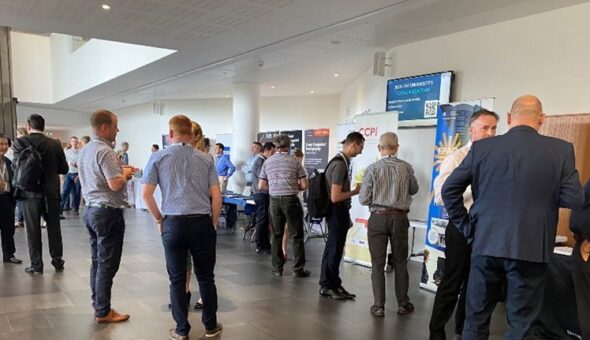For International Women's Day 2024, we're celebrating how our research is improving the lives of women worldwide. Jennifer Manda, PhD researcher in mechanical engineering and our Centre for Bioengineering & Biomedical Technologies writes about her research into developing better antenatal care in Malawi.
A woman dies every two minutes from preventable causes related to pregnancy and childbirth. Pregnancy hypertensive disorders like pre-eclampsia account for 22% of the mortality rate in the African region as recorded by WHO in 2021. Pre-eclampsia is a complication of pregnancy whereby the mother’s blood pressure is elevated at, or after, 20 weeks of pregnancy. If untreated it can lead to blood clot complications, cardiovascular diseases, eclampsia which is described by violent convulsions, and sadly, death.
My research aims to develop BABI (Better Antenatal care through Biomechanics and Imaging) for early diagnosis of pre-eclampsia in Malawi and other low-income countries. It proposes to use a state-of-the-art non-invasive ultrasound imaging technique in combination with computational modelling of arterial pulse waves to characterise the changing stiffness of the placenta that occurs during pre-eclampsia, with the aim of delivering an imaging biomarker for early diagnosis of this condition.
This topic is quite different to my mechanical engineering degree, which focused on thermal power and fluids. But I chose to pursue this area of research because of a personal experience. Rather than seeing myself as a victim, I could use my expertise and contribute to finding a solution. I am consequently committed to developing BABI in Malawi, where I was born, as well as in any other country where pregnant women suffer because of the inadequacies of their health systems.
Support and empowerment
Dr Andrew Cookson and Dr Katharine Fraser, who are my supervisors, along with the cardiovascular group, offer guidance on how to best propel my research in developing BABI. I have been able to focus on my research thanks to this as well as the financial support from the Schlumberger Faculty for the Future and the Commonwealth Scholarships Commission.
Positive change and challenges
The major goal of my research is to obtain new insights in BABI that may be applied broadly, cheaply, and primarily for low-income countries. The primary obstacles faced thus far include this, as well as the difficulties in obtaining maternal MRI data required for blood flow simulations and sophisticated shear wave elastography equipment needed to analyse placental stiffness.
Respond
